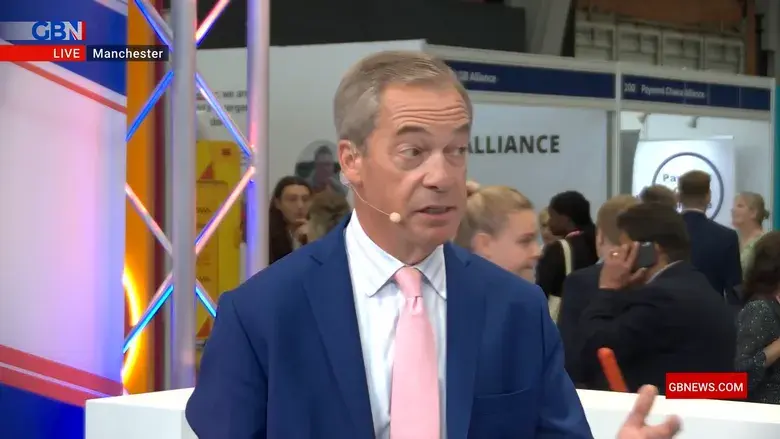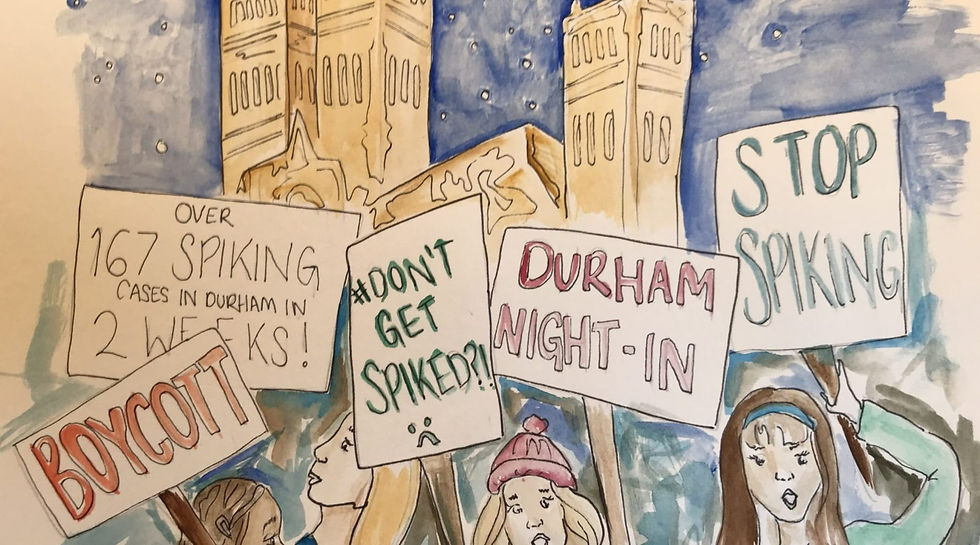The Conservatives: A Dead Party Walking
- benpawlowski
- Oct 5, 2023
- 5 min read
By the end of 2020, Rishi Sunak was the most popular politician in the United Kingdom. As we head towards the end of 2023, the faint inclinations of support gathered during Sunak's tenure as Chancellor of the Exchequer have long since evaporated from the pool of public opinion. He is now no longer Prime Minister, rather a Leader of the Opposition in-waiting.
Sunak's fate corresponds with that of his party. Riding high in the polls at the start of the Covid-19 pandemic, perhaps then imbued by a sense of national patriotism, the Conservative Party has since sunk and sunk and sunk to the depths of political despair. Recent polls suggest a consistent 20-point lead for Labour with a general election lingering on the horizon.
Whilst the polls have only shifted in the last couple of years, the truth is that the Tories' decline in popularity lies in a long-history of radicalisation, manifest in a pandering to the malevolent forces of the extreme-right. The Conservative Party Conference in Manchester this week was the embodiment of that transition, a self-indulgent parade of a dead party walking.
The conference was a pompous display of mistruth with the rudderless Sunak at the wheel. His party were espousing an ideology and a form of politics so deeply layered in depressing irony that it would frankly be hilarious if the consequences weren't so pertinently damaging.

There exists a culture of denial deeply rooted in post-Brexit political discourse which shapes this viewpoint. The need to frame Brexit as a positive, despite the myriad evidence of the opposite, has fostered a sense of a lack of accountability and a perversion of the truth. This commitment to Brexit has also seen the integration of political forces hitherto consigned to the extremities of the British political system - the UKIP and Brexit Party types, once laughed at, are now accommodated for and pandered to.
Nigel Farage, former UKIP leader and architect-in-chief of the rise in British Euroscepticism, was spotted dancing with former Home Secretary Priti Patel. Previously ostracised, Farage and his ilk are now warmly embraced. His influence appears not just on the conference dancefloor but in official policy, too - Suella Braverman's speech centred on immigration was laced with dehumanising language taken straight from the UKIP / Farage handbook of yesteryear, symbolising a government completely devoid of empathy or rational thought.

Aside from Farage, another ghost of British political past returned to take centre stage. Perhaps the epitome of the Tories' perpetual cycle of denial was the role of former Prime Minister Liz Truss. Appearing to large crowds at fringe events, Truss positioned herself as a kingmaker and voice of ideological reason, disseminating yet further a vision of a low-tax, high-growth utopia. She appeared unaware of the rich irony considering the devastating implications of such an experiment a year ago.
The irony appeared lost on Sunak, too, who positioned himself and his party as a force for change. The past 13 years of government obviously didn't count, or weren't really Conservatism, and that the widespread disillusionment with politics was not at all due to him and his party's actions at all.
The Tories' new slogan, coupled with an array of new policies, further adds to a feeling that the party are living in a parallel universe, cut off from the quotidian reality of the electorate. "Taking long-term decisions for a brighter future" were the words emblazoned on the blue lectern.
Among the decisions ostensibly taken for the future's long-term future was the abandonment of large swathes of the HS2 project, the country's largest ongoing infrastructure project with the capability to massively improve connectivity, particularly in the North. The cancellation of all routes bar London to Birmingham serves as a pathetic indictment of the state of the country, and a damning indication of the result of the 13 years of Conservative government.
HS2 trains from Birmingham to Manchester will now run on normal-speed lines. Thus, in one swift, archaic decision, Sunak has rendered the multi-billion-pound project utterly futile. The trains will be unable to run at their top speeds, which would have cut commuter times, or run on their own tracks, which would have freed up crucial capacity on an extortionately cramped East Coast Main Line. In an era where most of Europe has a sophisticated high-speed rail network, this farce is utterly inexcusable.

It also serves as a potentially fatal blow to the Levelling Up agenda, denying the North a much-needed boost in connectivity. A transformative piece of infrastructure has been resigned to the history books in a streak of populist fury based on short-term savings. A long-term decision for a brighter future? I'm not so sure.
The same can be said with regards to the rolling-back of environmental measures designed to achieve Net Zero by 2050. This decision is, in spite of whatever slogan Sunak’s spads can muster up, a short-term decision ridden with misjudged political opportunism. Sunak’s jolt towards an anti-green agenda is explicitly related to the Uxbridge by-election, a mere 500 voters, and a complete misunderstanding of a deeply divisive local issue. An outlier among a recent history of embarrassing electoral defeats (the Conservatives still lost almost 8% of the vote share in Uxbridge), Sunak has latched onto the environmental issue with a damning whiff of desperation.
Net Zero also exposes the inherent flaws in Sunak’s rhetoric of change and long-termism. Delaying green policies in order to “ease the burden on working people” and improve the Tories’ electoral prospects is the very opposite of long-term thinking. The environment is not a can to be kicked up the road – it is a very real threat with very real current effects, and Sunak would be disingenuous to suggest that a dilution of green policies is anyway beneficial for our long-term future.
Elsewhere, further policy announcements continue to allude to a party hijacked by a clique of extremists. Complaints about Wales’ 20mph speed limits and 15-minute cities cultivate a culture of conspiracy that, previously taboo, is widely accepted by the UK’s governing party. Railing against the imagined injustices of wokery and liberalism appears deeply unserious, pointless, and as another example of the party’s desperation.

Desperation, a long-history of radicalisation, and ineffective leadership combine to form a fatal cocktail. For the Conservative Party, it could spend their very end as a pertinent political force. For Sir Keir Starmer and Labour, it allows them to patiently occupy the centre ground, watching on with glee as a transformative post-Brexit shift to the right continues to act as a form of self-sabotage.
This, at least, can give a despairing public a slither of hope. There will be a general election in 2024 and the Tories will, almost certainly, be obliterated. Many of the aforementioned policies will not have the time to be made real.
The likelihood is the party is destined for over a decade in opposition, possibly more, a punishment for a dereliction of basic duty. A deep sigh of relief for many. But for now they remain in power, clinging on desperately.







Comments